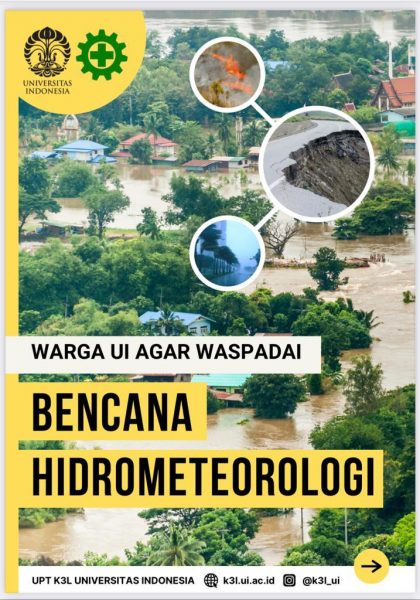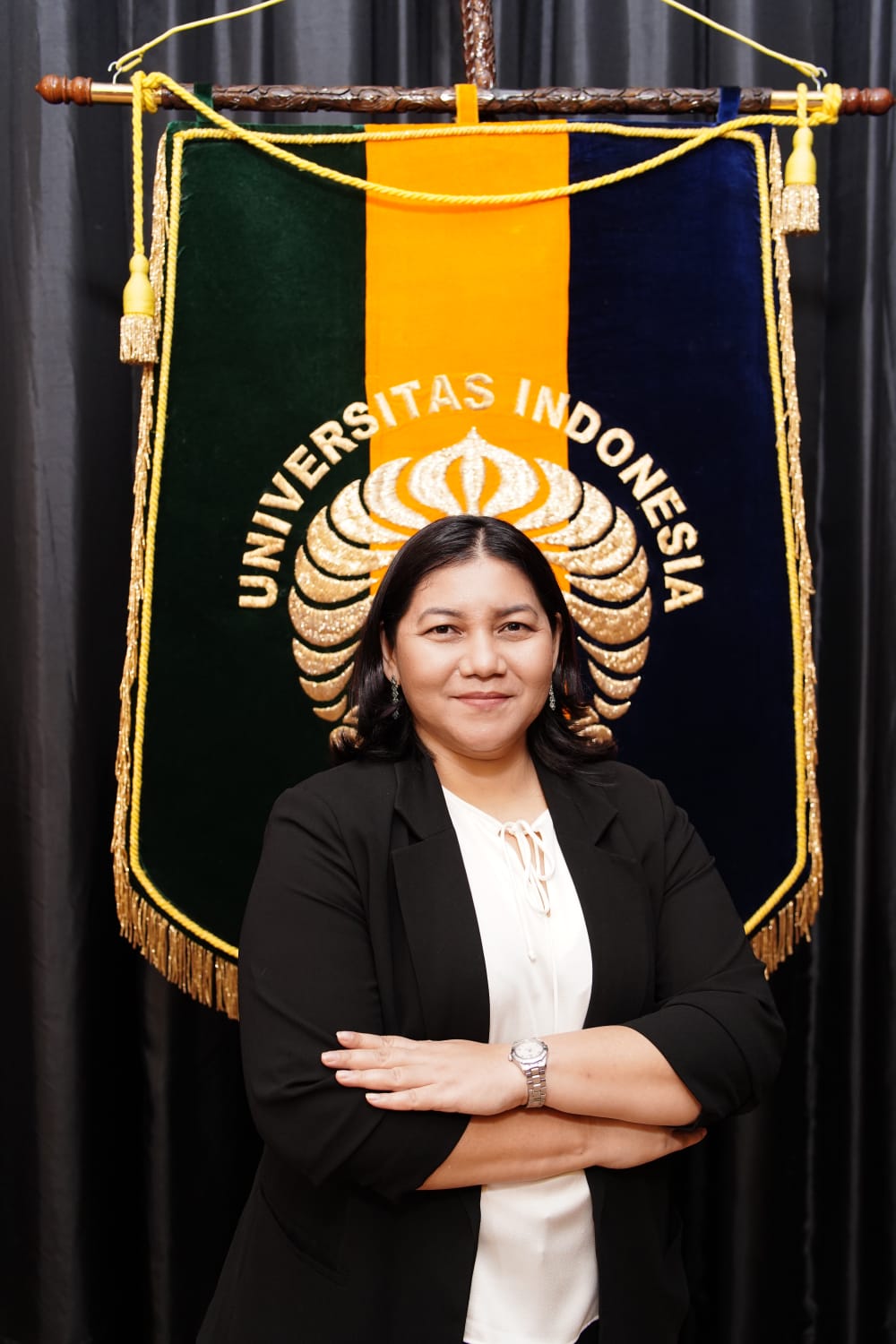
In facing the potential for hydrometeorological disasters, the Head of the Technical Implementation Unit of Health, Safety, and Environment (UPT K3L) at Universitas Indonesia (UI) appealed to all UI community to be aware of the impact of the La-Nina phenomenon that has entered Indonesian territory. From January to early November 2021, the National Disaster Management Authority (BNPB) recorded 2,242 disaster incidents in Indonesia where more than 90% of these events were hydrometeorological disasters.
Hydrometeorological disasters are caused by meteorological parameters –rainfall, humidity, temperature, and wind — for example floods, storms, strong winds, and landslides. Based on this, UPT K3L UI has made guidelines for the UI community so they can increase their vigilance and prepare themselves for potential hydrometeorological disasters. The guidelines contain ways to deal with extreme weather, flood preparedness, and landslide preparedness.
In order to deal with extreme weather, the UI community is appealed to always check weather forecasts and early warnings on BMKG application and BMKG social media before doing outdoor activities. If there is heavy rain and strong winds, avoid outdoor activities and take shelter under trees, and stay away from power lines, towers, or anything that is easily struck by lightning. In addition, it is highly suggested to take shelter in buildings when there is heavy rain followed by lightning and thunder. Another important thing is to check the vehicle before using it to ensure its safety.
Apart from the risk of heavy rain, strong winds and lightning, long-duration rainfall can cause potential floods and landslides. To anticipate this, all people are asked to keep their valuable belongings in the form of digital/soft copy documents and record emergency numbers and inform the whole family. Preparing belongings is needed if there is an appeal to evacuate. Immediately secure valuable belongings to a higher place, turn off the power grid, and prepare a grab-and-go bag.
When a flood occurs, immediately follow the officer’s directions and evacuate to a safe place or a predetermined location through the evacuation route. While in refugee camps, pay attention to health protocols such as wearing a mask, washing hands, and keeping the physical distance. When the flood has subsided, return to the house after it is safe and use footwear to avoid sharp objects. Sterilize the house and clean up the mud caused by the flood. Also, beware of stinging and venomous animals.
Another potential disaster is landslide disaster. Beware of high rainfall and read information about rain and the possibility of landslides from the local Indonesian Agency for Meteorological, Climatological, and Geophysics (BMKG) and Regional Disaster Management Authority (BPBD). Evacuate by staying away from landslide-prone areas based on instructions from the authorities (eg: Local BPBD). If you are in the house and hear rumbling sounds, get out immediately and find a spacious place without blocks or gathering points. Don’t rush back home and observe whether aftershocks will still occur. Follow the instructions of the authorities for further countermeasures.
Information related to potential and disaster management can be monitored on INARisk Personal BNPB application. If you witness or experience an emergency on campus, you can call emergency contact 14001 or reach out to the Quick Response Unit of UPT PLK UI on duty. If you experience a disaster emergency, you can call emergency contact 112 or the Disaster Management and Operations Center (Pusdalops-PB) of BPBD West Java at 022-7315274 or BPBD DKI Jakarta at 021-6344766.



